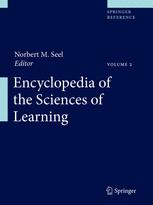Synonyms
Definition
Epistemic curiosity is the desire to obtain new knowledge (e.g., concepts, ideas, and facts) expected to stimulate intellectual interest (I-type) or eliminate conditions of informational deprivation (D-type). I-type epistemic curiosity appears to be maximally activated when individuals recognize opportunities to discover something completely new, whereas D-type epistemic curiosity is optimally stimulated when people lack specific pieces of information they wish to incorporate into an existing knowledge-set. Once activated, the degree to which each type of epistemic curiosity is experienced and behaviorally expressed has been found to vary according to individual differences in I- and D-type epistemic curiosity personality traits (Litman 2008).
I- and D-type epistemic curiosity each corresponds to different orientations toward seeking new information. I-type epistemic curiosity involves focusing on the…
References
-
Berlyne, D. E. (1954). A theory of human curiosity. British Journal of Psychology, 45, 180–191.
-
Day, H. (1971). The measurement of specific curiosity. In H. Day, D. Berlyne, & D. Hunt (Eds.), Intrinsic motivation: A new direction in education (pp. 99–112). Toronto: Holt, Rinehart, and Winston.
-
Kang, M. J., Hsu, M., Krajbich, I. M., Loewenstein, G., McClure, S. M., Wang, J. T., & Camerer, C. F. (2009). The wick in the candle of learning: Epistemic curiosity activates reward circuitry and enhances memory. Psychological Science, 20, 963–973.
-
Litman, J. A. (2005). Curiosity and the pleasures of learning: Wanting and liking new information. Cognition and Emotion, 19, 793–814.
-
Litman, J. A. (2008). Interest and deprivation dimensions of epistemic curiosity. Personality and Individual Differences, 44, 1585–1595.
-
Litman, J. A., Crowson, H. M., & Kolinski, K. (2010). Validity of the interest- and deprivation-type epistemic curiosity distinction in non-students. Personality and Individual Differences, 49, 531–536.
-
Litman, J. A., Hutchins, T. L., & Russon, R. K. (2005). Epistemic curiosity, feeling-of-knowing, and exploratory behaviour. Cognition and Emotion, 19, 559–582.
-
Loewenstein, G. (1994). The psychology of curiosity: A review and reinterpretation. Psychological Bulletin, 116, 75–98.
-
Mussel, P. (2010). Epistemic curiosity and related constructs: Lacking evidence of discriminant validity. Personality and Individual Differences, 49, 506–510.
Editor information
Editors and Affiliations
-
Faculty of Economics and Behavioral Sciences, Department of Education, University of Freiburg, 79085, Freiburg, Germany
Norbert M. Seel
Rights and permissions
Copyright information
© 2012 Springer Science+Business Media, LLC




